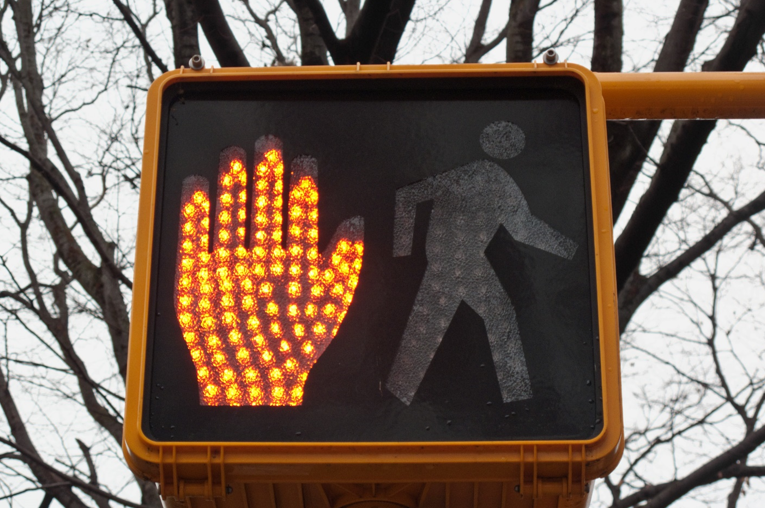I recently had an experience that started me thinking about what it means to be equal in our society. There is an auditory walk signal at the intersection of Broadway and Skyline. “Wow,” I exclaimed, “this is great.”
As a blind person, the way I cross at lighted intersections is to wait for cars in the closest lane to pass the half-way point. Wide streets and left-hand-turning vehicles are confusing. An auditory signal provides some confidence that no turn arrows are active when I run the gauntlet of a busy intersection.
Yet, as I walk our city, I feel as if I am a second-class citizen. Broken pavements, low-hanging trees, people parking across sidewalks or pulling out without looking both ways require caution. A disparity exists between those who blithely speed down roads, unaware of what happens outside their immediate view and pedestrians. Sometimes a stranger asks whether I need a ride. While this kindness is appreciated, it does not address the underlying inequality that exists between pedestrians and drivers. The gift of a ride is transitory, unreliable and sometimes offered out of pity or obligation. The auditory signal is always there, and it can be depended upon to perform its function. It supports independence and fosters equal access.
Think for a moment about the many ways people find themselves walking the sidewalks of our community. The color of one’s skin, the socioeconomic class into which one is born, a disability, a poor education, contribute to life’s opportunities. Every citizen has the choice either to ignore existing inequality or to act for inclusion. The acts of charity we bestow on others are commendable but fail to address the root causes of poverty and disconnection.
The COVID-19 pandemic highlights the gulf between those who have made it and those who struggle to survive. The stimulus check, the increase in unemployment benefits and temporary mortgage relief is wonderful, but do little to address the social and economic distance between those who have and those who lack.
This election provides an opportunity to oppose those who seek only to hold on to power — to keep the roads for themselves. Politicians who create an us-versus-them mindset and paint a dystopian picture of a world where individual initiative is stifled and the “poor,” the “immigrant” and people perceived as different from “us” sap the lifeblood of society.
When we choose to support equality for those at the margins, life improves for everyone. Installing an auditory walk signal increases accessibility and safety for all pedestrians. Creating a living wage for essential workers promotes economic security. Including trans people in public accommodations supports individual dignity and freedom. The next time someone uses a stereotype or a fear-based argument to malign a class of individuals, take a moment to talk to a person from that group and learn how they see the world. What barriers to equality do they face? How can we make a difference?

